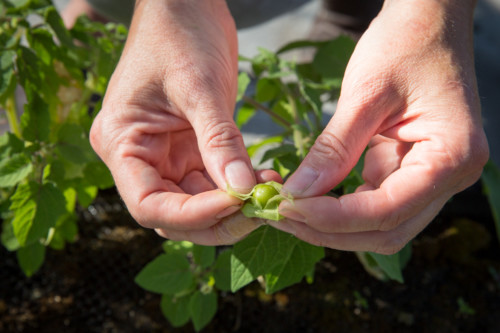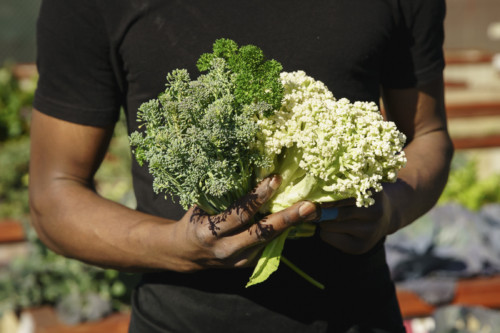“What If All Students Spent a Year Working the Land Before University?” The Guardian Asks
“What if all students spent a year working the land before university?”– The Guardian‘s Hugh Warwick asks that very question in a new article for the newspaper that focuses on what a year of “eco-conscription” could do to “renew the bonds between people and the land.”
Reimagining the gap year as an opportunity for students to “grow food, develop community, and repair a damaged environment,” Warwick writes:
“The number of social, health and ecological benefits that can be gained from a year of working in common purpose is astounding. Breaking down social barriers by having people working together from all over the country will remind us how much we have in common. Working outside in nature is known to benefit us in body and mind – not just because I might be a bit of a hippy, but because peer-reviewed science shows that it does. We know that convalescence is faster, recidivism is reduced, learning is deeper and our minds are eased in nature.
“Learning where food comes from, growing it and eating it, will help tackle unhealthy patterns of consumption.”
Learning where food comes from, growing it and eating it, will help tackle unhealthy patterns of consumption. Rural communities will benefit from an influx of people. Villages might become more than dormitories once more. Hedges would be laid, drystone walls built, fruit harvested, weeds pulled, ditches cleared. The emphasis would shift from contractors’ tractors to people power. The threatened absence of seasonal workers from Europe, as we retreat after Brexit, will be catered for as well.
This would not be restricted to the countryside. Urban growing and community projects would also be up and running. The wonderful Oxford City Farm, just beginning to grow near my home, is one of many projects that could benefit from a tide of willing workers.”
Addressing the prospect of this labor subsidizing tuition costs and leading to a greater net interest in higher education (ideally related to the Environment), Warwick adds:
“In return for the work there is a reward – this would be the gateway to further education. Not only would you have the tuition fees paid, you would have also had a year to consider what you really wanted to do. Now it might be that you never want to set foot in a field again, ever. Or possibly it will be the way you find a calling and a connection.
“This is a chance to fight back against the enemy, because this is a war. We have just not woken up to the fact yet.”
This may seem far-fetched but I would never have predicted the progress that was made with smoking and plastic bags, for example. Yes, this is state coercion. But does that make it any worse than the corporate coercion that has helped create such an insular, unfit and unhappy society; that has helped create an ecological desert in the countryside? This is a chance to fight back against the enemy, because this is a war. We have just not woken up to the fact yet.”
Read the entirety of the article here, via The Guardian.




































